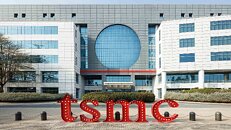- Joined
- Aug 19, 2017
- Messages
- 2,780 (1.02/day)
Even with billions of US dollars being invested overseas, TSMC cannot legally manufacture its most advanced nodes outside of Taiwan. According to Taiwan's Minister of Economic Affairs J.W. Kuo, "Since Taiwan has regulations to protect its own technologies, TSMC cannot produce 2-nanometer chips overseas currently." He added, "Although TSMC plans to make 2-nanometer chips [abroad] in the future, its core technology will stay in Taiwan." This provides crucial insight into TSMC's strategic positioning, both in its US expansion plans and in navigating global geopolitical waters, especially with Taiwan being the major hub of silicon innovation. Taiwan's semiconductor industry follows strict regulations regarding overseas production capabilities, requiring companies to maintain their most advanced manufacturing processes within Taiwan.
The company's international expansion strategy includes significant developments in the United States. TSMC's Arizona facilities are central to these plans, with multiple fabs in different stages of development. The initial Arizona facility will begin producing 4 nm chips imminently, while a second facility, scheduled to open in 2028, will manufacture then mature 3 nm and 2 nm chips. A third planned facility aims to produce 2 nm or more sophisticated chips. Meanwhile, Taiwan-based facilities will produce more advanced chips at the same time, with volume production of A-16 chips planned for late 2026, following the rollout of 2 nm chip production in 2025. Furthermore, Taiwan-US semiconductor cooperation will continue regardless of political changes. Taiwan Semiconductor Industry Association (TSIA) Chairman and TSMC Senior Vice President Cliff Hou noted that historical evidence suggests US electoral outcomes have not significantly impacted this technological partnership, though some adjustments may occur.

This situation raises critical questions about the effectiveness of the CHIPS and Science Act's objectives. Despite TSMC being awarded substantial US government support—including $6.6 billion in direct grants and up to $5 billion in loans for its Phoenix facilities expansion—Taiwan's legal restrictions on exporting leading-edge technology create a significant policy contradiction. The company cannot legally manufacture its most advanced chips on US soil, which could prompt concerns among US policymakers who have committed billions of taxpayer dollars to establish cutting-edge semiconductor manufacturing capabilities domestically. This disconnect between Taiwan's policies and US technological ambitions might lead to broader discussions about the return on investment for American taxpayers. While TSMC's Arizona fabs will indeed bring advanced manufacturing capabilities to US soil, they won't represent the absolute cutting edge of semiconductor technology.
View at TechPowerUp Main Site | Source
The company's international expansion strategy includes significant developments in the United States. TSMC's Arizona facilities are central to these plans, with multiple fabs in different stages of development. The initial Arizona facility will begin producing 4 nm chips imminently, while a second facility, scheduled to open in 2028, will manufacture then mature 3 nm and 2 nm chips. A third planned facility aims to produce 2 nm or more sophisticated chips. Meanwhile, Taiwan-based facilities will produce more advanced chips at the same time, with volume production of A-16 chips planned for late 2026, following the rollout of 2 nm chip production in 2025. Furthermore, Taiwan-US semiconductor cooperation will continue regardless of political changes. Taiwan Semiconductor Industry Association (TSIA) Chairman and TSMC Senior Vice President Cliff Hou noted that historical evidence suggests US electoral outcomes have not significantly impacted this technological partnership, though some adjustments may occur.

This situation raises critical questions about the effectiveness of the CHIPS and Science Act's objectives. Despite TSMC being awarded substantial US government support—including $6.6 billion in direct grants and up to $5 billion in loans for its Phoenix facilities expansion—Taiwan's legal restrictions on exporting leading-edge technology create a significant policy contradiction. The company cannot legally manufacture its most advanced chips on US soil, which could prompt concerns among US policymakers who have committed billions of taxpayer dollars to establish cutting-edge semiconductor manufacturing capabilities domestically. This disconnect between Taiwan's policies and US technological ambitions might lead to broader discussions about the return on investment for American taxpayers. While TSMC's Arizona fabs will indeed bring advanced manufacturing capabilities to US soil, they won't represent the absolute cutting edge of semiconductor technology.
View at TechPowerUp Main Site | Source







